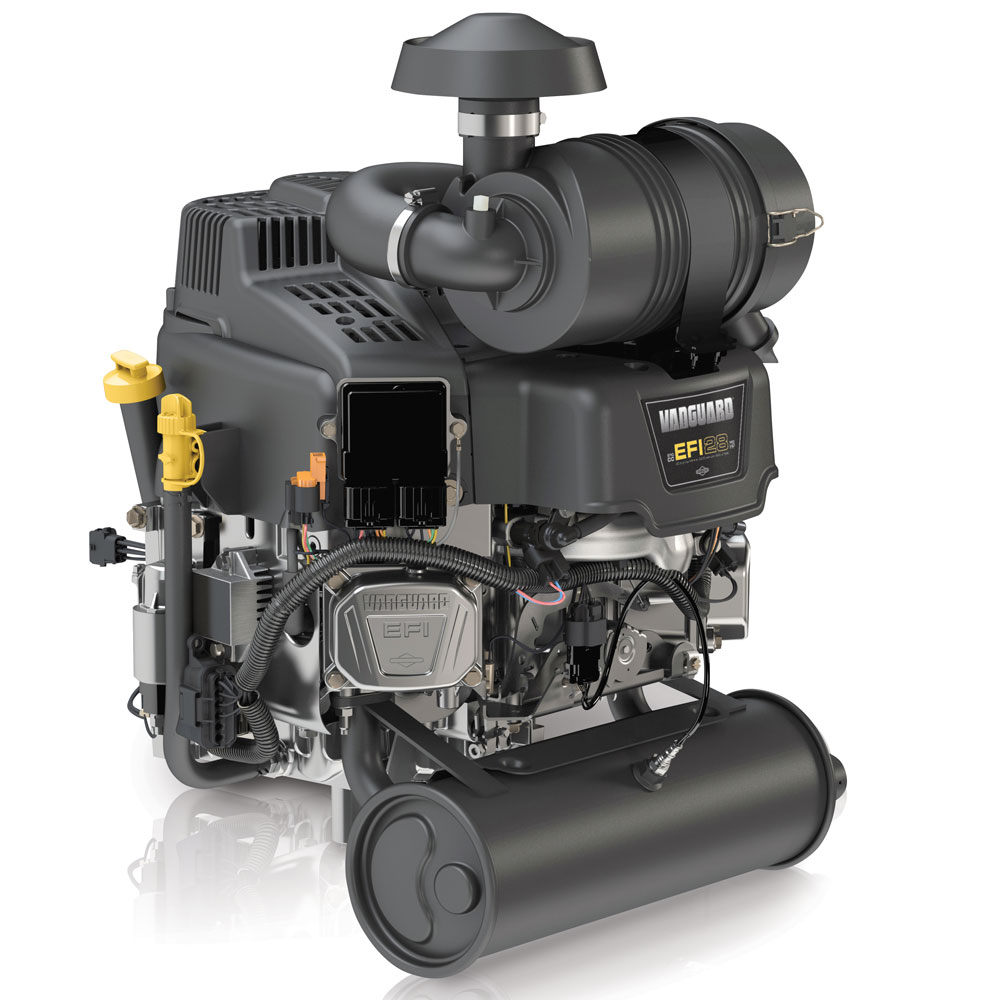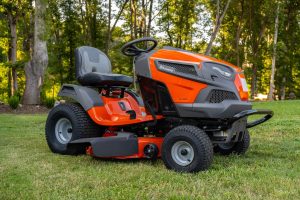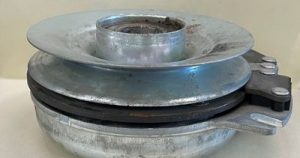Vanguard EFI Engine Issues and Answers

Mowing is enjoyable. And the fun is multiplied by a smoothly operating lawnmower with EFI engines. You can vouch for this if you own a Briggs & Stratton lawnmower. However, vanguard EFI engine issues are also frequent and must be effectively handled.
The most frequent issues with vanguard EFI engines include overheating, blue or white smoke emissions, difficulties starting the engine, and difficulty cranking the engine. To tackle those issues, many users seek professional assistance. But you can handle these problems on your own.
Please stay with us if you’d want to learn a few solutions to the most frequent issues you encounter on a regular basis.
Table of Contents
Vanguard EFI Engine Issues
The Briggs & Stratton engines troubleshooting manual is provided with every vanguard engine. Most of the time, if you follow this advice, your lawnmower will run without a hitch.
However, the reality is that’s uncommon, and we tend to wait until an issue arises. The user handbook is challenging to interpret due to the quiet, formal language and technical jargon.
Because of this, we list the most typical issues with vanguard EFI engines. Additionally, we would recommend treatments you may do to stop the problems from occurring.
Let’s begin with the following table:
| Issues | Causes |
| Having trouble cranking | Problems with the battery setup, such as a damaged battery or batteries that are completely discharged, long battery leads or wires of a tiny diameter |
| Overheating | A buildup of dirt, an obstruction in the movement of air, an improper lubricant, a fuel line leak, or other barriers to the flow of fuels |
| The engine is emitting smoke. | Using the wrong grade of fuel, filling the crankcase to the top, and blowing the head gasket |
| Unacceptable performance, poor fuel economy, and a rapid lack of power | Using subpar fuel |
Now let’s get to know the possible fixes that you can try on your own.
Cranking Challenges
Before rushing to the nearby dealer or seeking assistance from an expert, there are a few things you can do if the vanguard engine won’t start.
The incorrect positioning of the cranking sensor is another factor preventing the vanguard EFI engines from starting.
Overheating
A vanguard 37 EFI fuel pump or V-twin turbo might overheat for a number of different causes. And if you don’t address them, problems can start to appear. expanding metal components, deteriorating tear and wear with a potential for seizing, etc.
All of those could result in costly repairs that could have been avoided. Additionally, addressing overheating problems will make engines last longer.
Accumulation of Dirt
The engines in Vanguard are air-cooled. Heat from the engine is transferred via cylinder-head fins and blocks. When you mow, grass, dirt, or other particles collect over the fins, reducing their ability to shed heat and causing engines to overheat.
Running at a high pace generates a lot of air for an air-cooled motorcycle engine to cool down. Your lawnmower, on the other hand, goes slowly and doesn’t get enough air.
On the flywheel, there are tiny fins that function more like a cage fan, drawing and pushing air over the engine. As well as directing air away from the engine, the cowling. Your vanguard EFI cools down in this manner.
Regularly carry out the following to stop obstructions from forming in the airflow’s path:
In addition to lubricating engines, lubricants also function as heat transfer agents. The block receives the heat produced in the combustion portion. This aids in removing heat from the chamber via the cooling system.
The lawn mower engines easily overheat due to their slow motion. The overheating increases when the summer heat is added. A lubricant with low viscosity burns down quickly in this circumstance. So they are powerless to stop the cooling-off process.
The temperature in the combustion chamber rises when or if a 37 HP vanguard EFI fuel pump fails to pump enough fuel.
Two factors, such as a pinhole leak along the gasoline line that makes siphoning motions harder, and bottlenecks in fuel flow, such as clogged lines, needle jets or filters, etc., can make it difficult to provide the engine with enough fuel.
Having damaged carburetor seals is another problem. This makes room for the stale gasoline and thinned fuel mixture in the engines.
Do the following to deal with them:
Smoke is coming from the engine
Smoke will result from the oil burning. The main cause of oil burning is poor quality or ineffective lubricants. Smokes can also be caused by a crankcase that is overfilled or a bad gasket.
You should always be careful when using high-quality fuels to prevent loud noises. Additionally, this will improve fuel efficiency and guarantee the engines’ ongoing power supply.
An Important Tutorial You Might Need!
Frequently Asked Questions (FAQs)
How reliable are vanguard engines?
The Vanguard engines are excellent. They have been utilized for a while. And if these engines are unable to provide the satisfaction that people expect from them, then that won’t happen.
Who manufactures vanguard engines?
The company that makes vanguard engines is Briggs & Stratton. This company was founded about 113 years ago, and since then, they have continued to produce high-quality engines.
Is Vanguard the same as Briggs & Stratton?
The business that produces vanguard engines goes by the name of Briggs & Stratton. In that case, they are equivalent in meaning.
Summary
As previously noted, if we ignore the vanguard EFI engine issues, the enjoyment of mowing may be lost.
If we are a little bit diligent in maintaining the devices, we can resolve the problems mentioned above. But the truth is that even if we are attentive and perform routine maintenance, many of those issues can still cause us troubles.
We cannot get away with things like grass, garbage, summer heating, decaying fuel, etc. Therefore, having the abilities to fulfill the demands is always useful.
That will spare us the time and occasionally large sums of money that we might otherwise have to spend in order to maximize the performance of our leading EFI engines.







